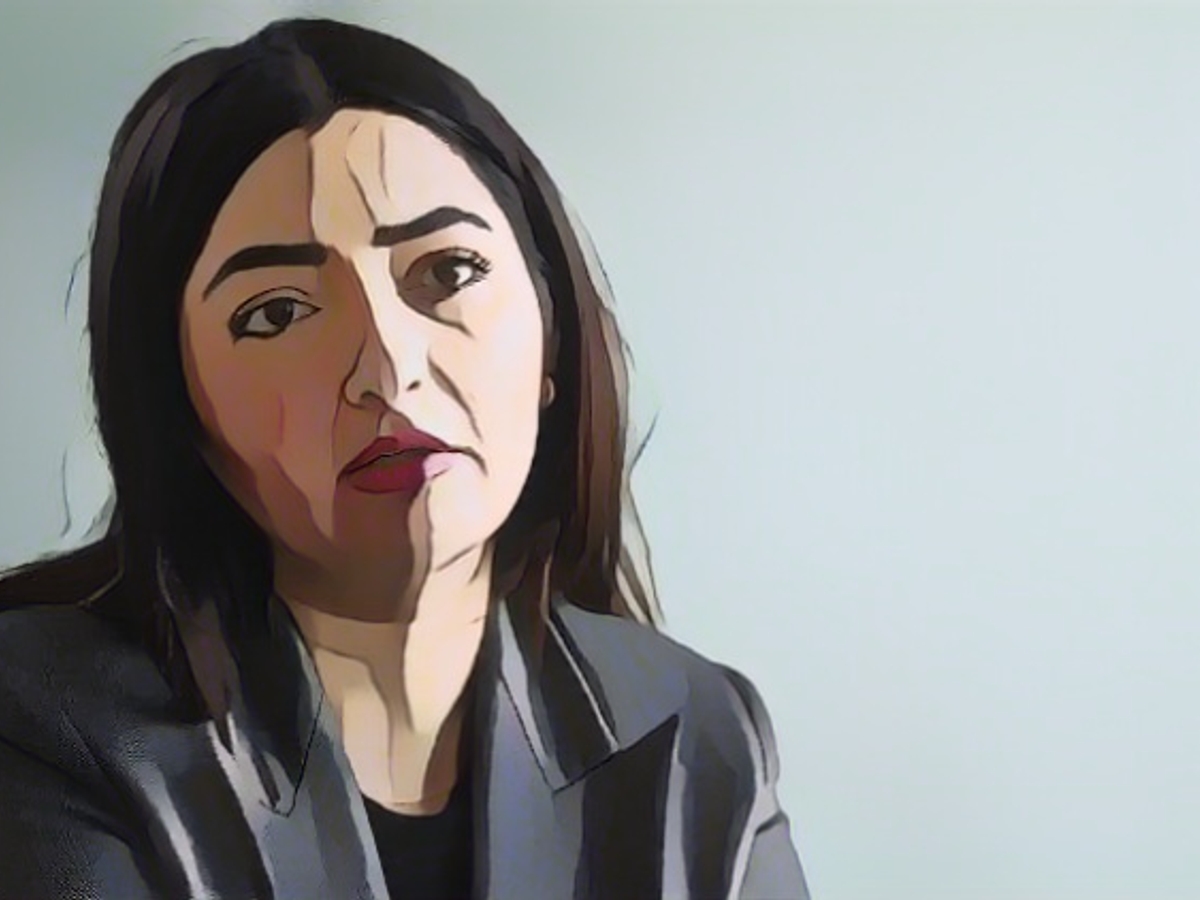Integration commissioner considers migration debate dangerous
Ahead of the federal-state summit on migration policy on Monday, the Federal Government Commissioner for Integration, Reem Alabali-Radovan, has criticized the "heated debate" on the topic. "It damages cohesion when the migration issue is used as the cause of all the problems in our country on a daily basis," she told the Funke Mediengruppe newspapers. Meanwhile, there were new calls for benefit cuts for refugees.
Federal Chancellor Olaf Scholz will discuss measures with the state premiers to reduce the number of refugees and migrants entering Germany. They will also discuss the distribution of costs between the federal and state governments.
Alabali-Radovan went on to say that the round table must "agree on sustainable, long-term solutions that help local authorities to take in people seeking protection and pacify the ongoing dispute". "We need reliable structures for taking in refugees and integration measures that are not always frantically ramped up and down," she continued. "What doesn't help us now are new charged debates every day about bogus solutions, upper limits for refugees and integration limits," the Integration Commissioner pointed out. Instead, we need to talk more about "what we need for successful integration", the politician demanded.
Deportations, border controls and benefit restrictions
In addition to the distribution of finances, the discussions will also focus on accelerated deportations of those obliged to leave the country, stricter border controls and restrictions on benefits for asylum seekers. Cash payments are to be replaced by benefits in kind in the form of a payment card, but the details of implementation are still unclear.
FDP parliamentary group leader Christian Dürr reiterated his demand in the "Augsburger Allgemeine" newspaper to cut benefits for migrants who are obliged to leave the country. If they could not be deported and therefore remained in Germany for the time being, this should "not be rewarded with additional benefits from the welfare state". Dürr also once again urged a switch to payment cards. Among other things, this should prevent payments by refugees to smugglers and money transfers to their home countries.
"We want to ensure that the money that people who come to us receive is actually used for their own livelihood and that money is not transferred back to their home countries," said Mecklenburg-Western Pomerania's Minister President Manuela Schwesig. However, Schwesig rejected the FDP demand for cuts to social benefits on Deutschlandfunk radio. With a view to the talks on Monday, she reiterated the federal states' demand that the federal government should pay a lump sum of 10,500 euros for each refugee.
"Overbidding competition for the supposedly toughest demand"
The Minister President of North Rhine-Westphalia, Hendrik Wüst, called for "a clear consensus that irregular migration to Germany must be stopped". In the newspaper "Welt am Sonntag", he called for agreements with countries of origin so that rejected asylum seekers could be sent back there and for more accelerated procedures for refugees from countries with low recognition rates. Wüst also demanded more money from the federal government for the accommodation and care of refugees.
Green Party leader Ricarda Lang warned against a "competition to outdo the supposedly toughest demand". "Instead, we need to push ahead with what actually helps local communities," she told Der Spiegel.
- Prime Minister Olaf Scholz and the state premiers are set to discuss migration policy, focusing on reducing refugee and migrant entry, accelerated deportations, stricter border controls, and benefit restrictions for asylum seekers.
- Reem Alabali-Radovan, the Federal Government Commissioner for Integration, stressed the need for sustainable, long-term solutions to manage refugee influx and enhance integration, citing daily debates about alleged solutions as counterproductive.
- Manuela Schwesig, the Minister President of Mecklenburg-Western Pomerania, rejects the FDP's demand for benefit cuts for migrants, advocating for a lump sum payment of 10,500 euros from the federal government for each refugee.
- Hendrik Wüst, the Minister President of North Rhine-Westphalia, advocates for agreements with countries of origin to repatriate rejected asylum seekers and accelerate procedures for refugees from low recognition rate countries, while also requesting more funding for refugee accommodations and care.
- The Green Party leader, Ricarda Lang, cautions against an "overbidding competition" in immigration policy, advocating instead for focused efforts on community support to address migration challenges.
- Tugboat gangs were not mentioned in the text, but if we were to include that in a sentence, it could be: "The German authorities are also working to prevent involvement of tugboat gangs in illegal migration activities, strengthening border controls and cooperation with neighboring countries."
Source: www.ntv.de








